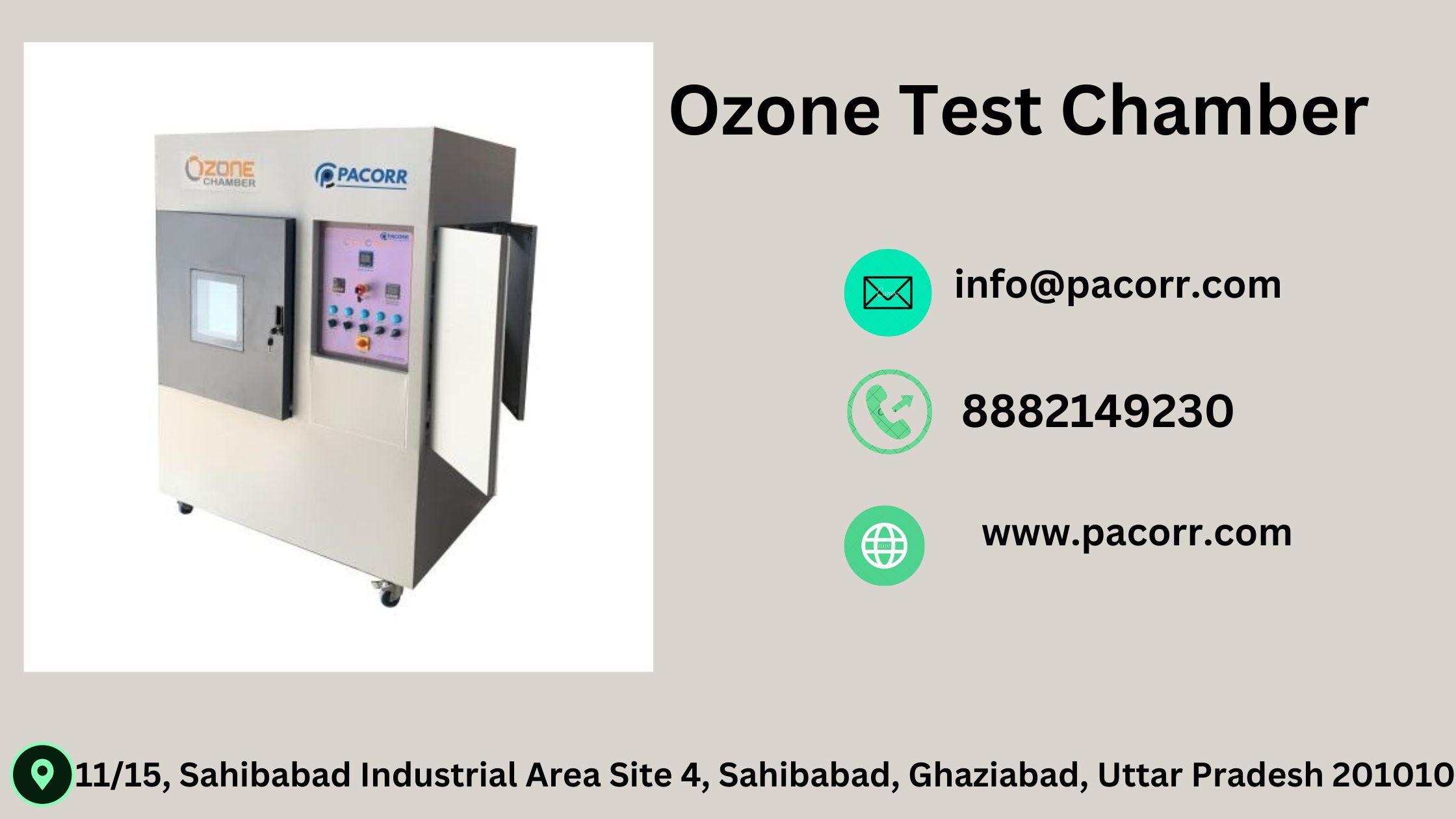Understanding the Importance of Ozone Chambers in Material Testing
Ozone chambers are essential testing instruments used to evaluate the resistance of materials, particularly rubber and polymer products, to ozone degradation. Ozone is a highly reactive form of oxygen that can cause significant deterioration in materials exposed to it over time. This deterioration can lead to cracks, loss of elasticity, and overall material failure, which can be catastrophic in critical applications. Therefore, understanding and mitigating ozone-related degradation is vital for manufacturers to ensure product durability and reliability.
What is an Ozone Chamber?
An ozone chamber is a controlled environment where materials can be exposed to ozone gas at specified concentrations, temperatures, and humidity levels. This controlled exposure allows for the simulation of long-term ozone effects within a shorter timeframe, providing valuable insights into how materials will perform over their expected lifespan. The data obtained from ozone Test chamber tests help manufacturers enhance product formulations and improve material longevity.
Key Features of Ozone Chambers
- Controlled Ozone Concentration: Ozone chambers are equipped with advanced systems to generate and maintain precise ozone concentrations, ensuring consistent and repeatable testing conditions.
- Temperature and Humidity Control: These chambers allow for the control of temperature and humidity, enabling the simulation of various environmental conditions that materials may encounter in real-world applications.
- Automated Monitoring: Modern ozone chambers feature automated monitoring systems that track ozone levels, temperature, and humidity in real-time, ensuring accuracy and reliability in testing.
- Safety Features: Given the reactive nature of ozone, these chambers are designed with safety features such as ozone destruct systems and alarms to protect users and maintain a safe testing environment.
Applications of Ozone Chambers
Ozone chambers Price are widely used across various industries, including automotive, aerospace, construction, and consumer goods. Some common applications include:
- Automotive: Testing the ozone resistance of tires, gaskets, hoses, and other rubber components to ensure they can withstand environmental exposure and maintain performance.
- Aerospace: Evaluating the durability of rubber seals, gaskets, and insulating materials used in aircraft, which are often exposed to ozone at high altitudes.
- Construction: Assessing the longevity of roofing materials, sealants, and coatings that are subject to outdoor exposure.
- Consumer Goods: Ensuring the durability of rubber and polymer products such as footwear, gloves, and elastomeric seals.
Benefits of Using Ozone Chambers
Enhanced Product Quality: By identifying materials susceptible to Ozone Chamber Supplier
- degradation, manufacturers can improve formulations and enhance product quality and reliability.
- Cost Savings: Early detection of ozone-related issues can prevent costly product failures and reduce warranty claims.
- Compliance with Standards: Ozone chamber testing helps manufacturers comply with industry standards and regulations, ensuring products meet required performance criteria.
- Increased Customer Satisfaction: Products that withstand ozone exposure maintain their integrity and performance over time, leading to higher customer satisfaction and brand loyalty.
Conclusion
Ozone Chamber Manufacturer are indispensable tools in the material testing landscape. They provide critical data that helps manufacturers understand and mitigate the effects of ozone on their products. By incorporating ozone chamber testing into their quality control processes, manufacturers can enhance product durability, ensure compliance with standards, and ultimately deliver superior products to the market. As industries continue to evolve, the importance of ozone chambers in ensuring material performance and reliability will only grow, making them a vital component in the pursuit of excellence in manufacturing.



